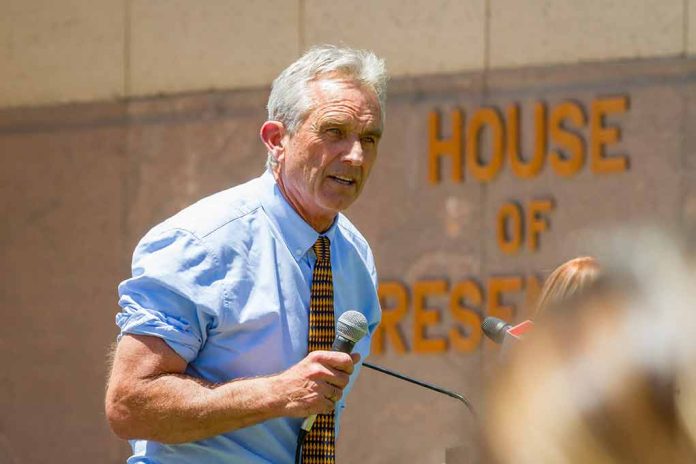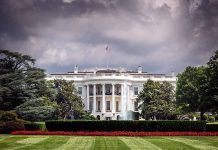
Robert F. Kennedy Jr.’s nomination to lead the Department of Health and Human Services is causing a stir, specifically for Central Illinois’s agribusiness.
At a Glance
- Kennedy targets high-fructose corn syrup, impacting Central Illinois corn production.
- Kennedy’s health policies could conflict with Trump’s agricultural stance.
- Kennedy’s nomination could face challenges in the Senate.
- Kennedy endorses Trump after suspending his independent presidential campaign.
Kennedy’s Focus on Health Reforms
President-elect Donald Trump nominated Robert F. Kennedy Jr. as Secretary of Health and Human Services, sparking discussions due to Kennedy’s previous controversial health claims. He aims to cut back on high-fructose corn syrup, a staple for the corn-based industries in Decatur, Illinois, which Kennedy believes contributes to obesity and chronic illness.
Kennedy views America’s corn syrup consumption critically, aligning with liberal figures like Michael Bloomberg. His health-centric plans, advocating for transparent scientific research and food safety, mark a shift that could disrupt regional economies relying on corn production.
Economic Concerns Amid Health Initiatives
Local workers and politicians express concerns over the potential impact on Decatur’s economy due to Kennedy’s policies. With declining demand already challenging the corn industry, Kennedy’s plans increase economic uncertainty. Some fear employment repercussions, despite regional support for Trump and confidence that protective measures may be negotiated to mitigate these risks.
While Senate Democrats criticize Kennedy’s controversial views, some Republican Senators support his nomination. Potential Senate challenges could hinder the implementation of his health reforms, reflecting a significant clash between public health goals and economic interests among Trump’s voter base.
Robert F. Kennedy Jr. argues that current practices damage both the environment and consumers' health.
Under former President Donald Trump's campaign, Kennedy has several proposals for major reforms, including banning more farm chemicals and revising dietary guidelines
Ag… pic.twitter.com/BrW4rxcezt
— DTN/Progressive Farmer (@dtnpf) October 23, 2024
Navigating Agribusiness and Health Agendas
Kennedy advocates alternative farming methods, suggesting shifts away from harmful pesticides and polluted soils. Such reforms have drawn criticism suggesting they contradict Trump’s deregulation efforts, igniting debates about administrative alignment on agricultural policies. With expectations of Kennedy targeting harmful chemicals, stakeholders debate whether his approach could safeguard public health without sacrificing economic stability.
“President Trump has given me three instructions: He wants the corruption and the conflicts out of the regulatory agencies. He wants to return the agencies to the gold standard empirically based, evidence-based science and medicine that they were once famous for. And he wants to end the chronic disease epidemic with measurable impacts on a diminishment of chronic disease within two years,” Kennedy said in an interview.
Despite the promise of health benefits, balancing economic realities with public health objectives remains politically charged. Kennedy’s leadership, requiring Senate consent, could reshape the country’s approach to food safety and health, exemplifying critical discourse about future agricultural and health policies.








